Companion Flowers That Will Boost Your Vegetable Garden
Companion Flowers That Will Boost Your Vegetable Garden
Introduction
Companion planting is a gardening practice that involves planting certain plants together to benefit each other. By strategically planting flowers and vegetables together, you can improve the growth, health, and productivity of your garden.
There are many different benefits to companion planting. Some flowers attract beneficial insects, such as pollinators, which help to pollinate your vegetable plants. Other flowers deter pests, so they can help to keep your vegetables safe from damage. Still other flowers improve the soil quality, which can benefit all of the plants in your garden.
If you're looking for ways to improve your vegetable garden, companion planting is a great option. In this blog post, we'll discuss some of the best flowers to plant with vegetables, and we'll explain how these flowers can benefit your garden.
Main Content
Here are some of the best flowers to plant with vegetables:
- Nasturtiums are a great choice for companion planting because they deter pests, such as aphids and whiteflies. They also attract pollinators, such as bees and butterflies. Nasturtiums are relatively easy to grow and can be planted in full sun or partial shade.

- Marigolds are another good choice for companion planting. They also deter pests, such as nematodes and tomato hornworms. Marigolds can also improve the soil quality by suppressing harmful bacteria and fungi. Marigolds are easy to grow and can be planted in full sun or partial shade.
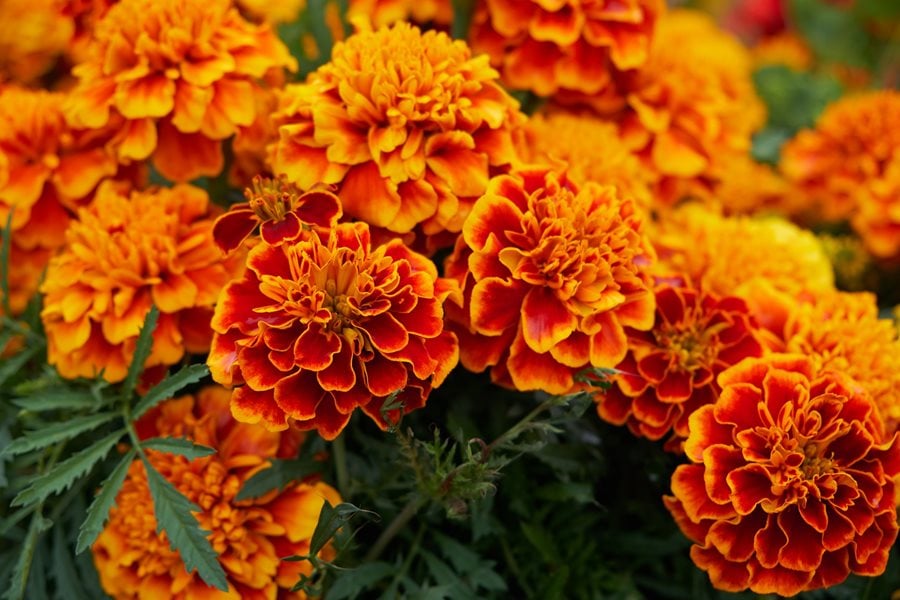
- Calendula is a flowering herb that can be used as a companion plant for many vegetables. It attracts beneficial insects, such as ladybugs and lacewings, which help to control pests. Calendula also improves the soil quality and can help to repel rabbits and deer. Calendula is easy to grow and can be planted in full sun or partial shade.
- Chives are a flowering herb that can be used as a companion plant for many vegetables. They attract beneficial insects, such as bees and butterflies, and they also repel pests, such as aphids and mosquitoes. Chives are easy to grow and can be planted in full sun or partial shade.

- Borage is a flowering herb that can be used as a companion plant for tomatoes, cucumbers, and squash. It attracts beneficial insects, such as bees and ladybugs, and it also repels pests, such as aphids and spider mites. Borage is easy to grow and can be planted in full sun or partial shade.
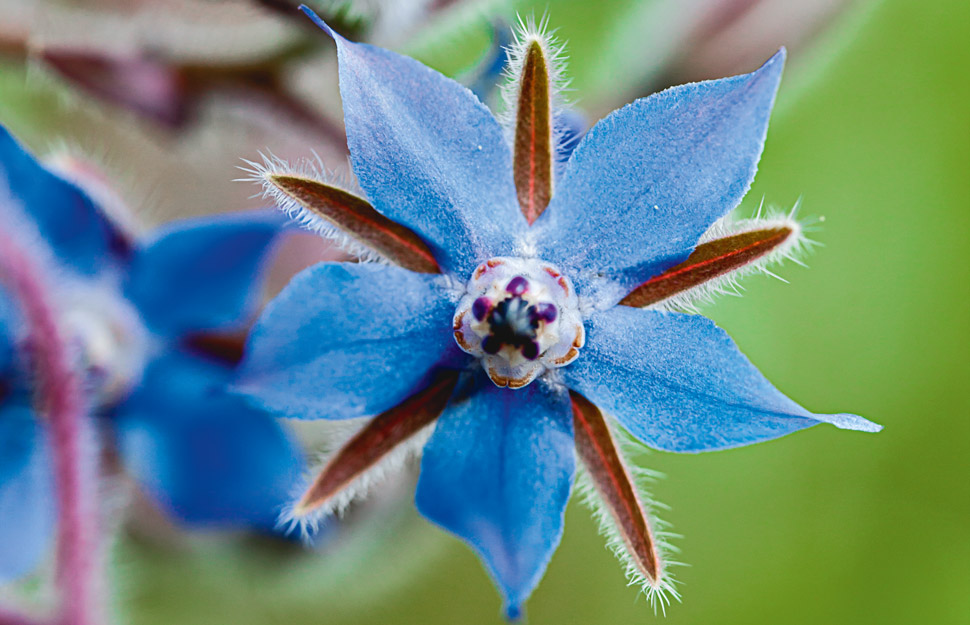
- Sunflowers are not only beautiful flowers, but they can also be beneficial companion plants for some vegetables. They attract beneficial insects, such as bees and butterflies, and they also provide shade for some vegetables, such as tomatoes. Sunflowers are easy to grow and can be planted in full sun.
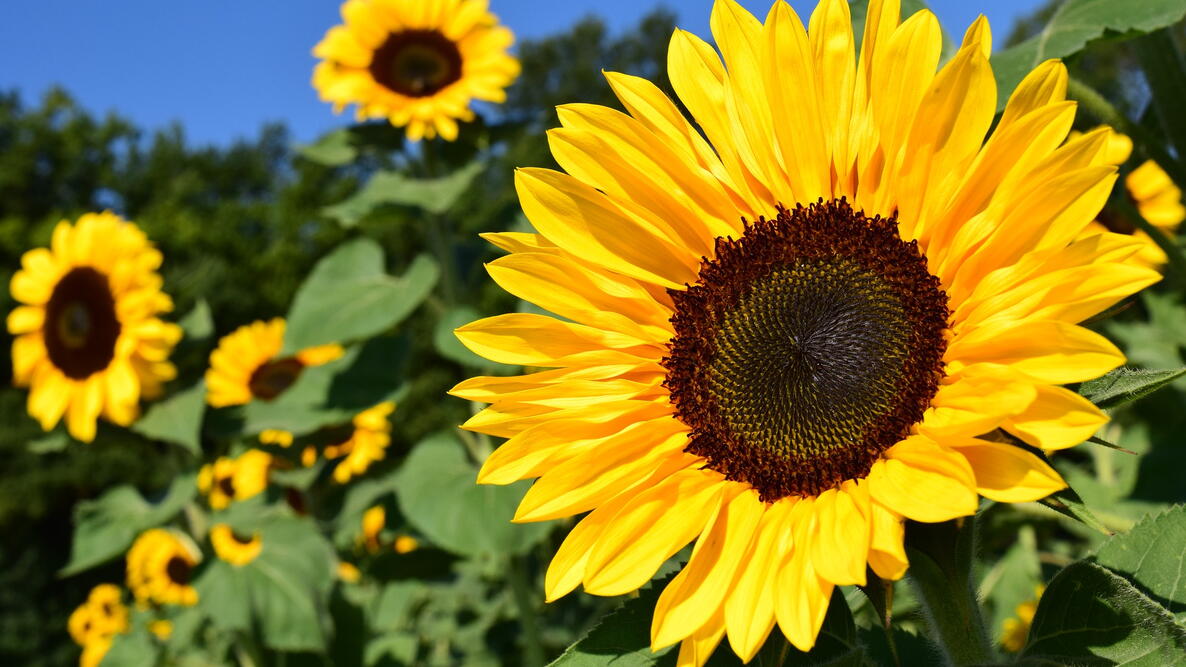
Conclusion
These are just a few of the many flowers that can be used as companion plants for vegetables. By strategically planting flowers and vegetables together, you can improve the growth, health, and productivity of your garden.
If you're new to companion planting, it's a good idea to do some research to learn more about which flowers are compatible with which vegetables. There are many resources available online and in libraries that can help you get started.
With a little planning, you can create a beautiful and productive vegetable garden that benefits from the companionship of flowers.
Companion planting is a gardening technique that involves planting certain types of flowers and vegetables together to benefit each other. Some flowers can help to deter pests, attract pollinators, or improve the soil quality for their neighboring vegetables.
If you're looking to add some companion flowers to your vegetable garden, Gardenia Inspiration is a great resource. They have a comprehensive list of flowers that are beneficial to different types of vegetables, as well as tips on how to plant and care for them.
For example, marigolds are a popular companion flower because they help to repel pests like aphids, nematodes, and tomato hornworms. Nasturtiums are another good choice, as they attract pollinators like bees and butterflies, which help to pollinate your vegetables. And borage is a great way to improve the soil quality for your tomatoes, as it helps to attract nitrogen-fixing bacteria.
No matter what type of vegetable garden you have, there are companion flowers that can help to improve its productivity and health. So be sure to check out Gardenia Inspiration for more information on how to use companion planting to get the most out of your garden.
Image of companion flowers for vegetable garden
- Nasturtiums: Nasturtiums are a great companion plant for tomatoes, as they help to deter pests like aphids and whiteflies. They also attract pollinators, which can help to improve the pollination of your tomatoes.
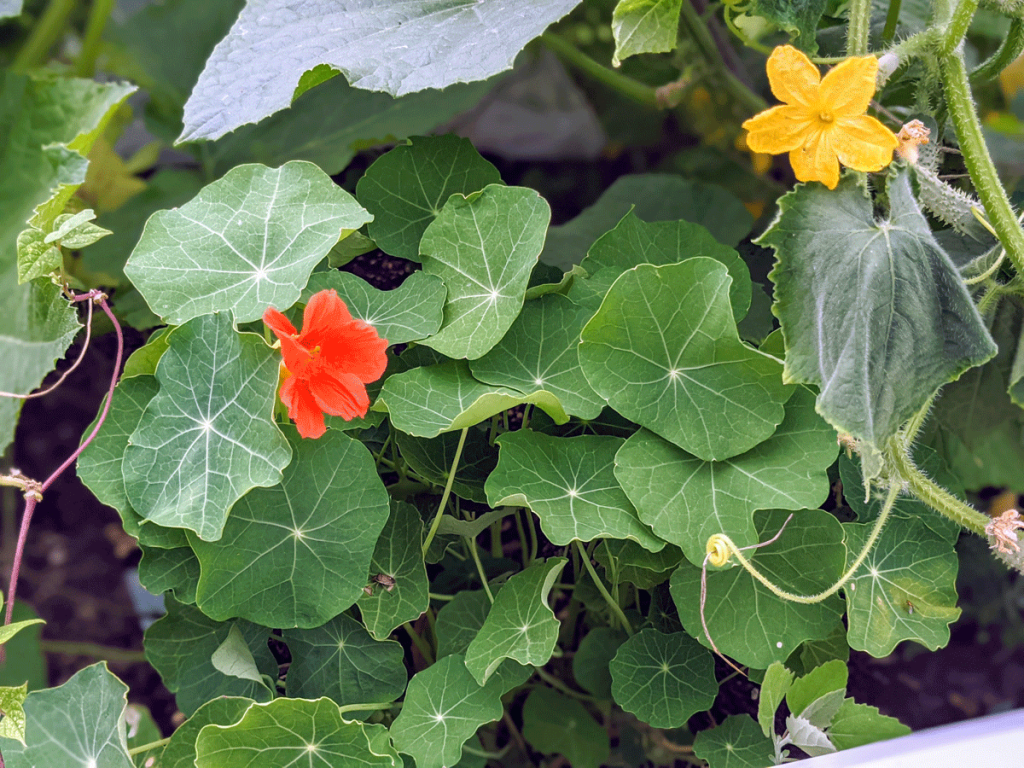
- Marigolds: Marigolds are another great companion plant for tomatoes, as they help to repel nematodes, which can damage tomato roots. They also help to improve the drainage of the soil around tomatoes.
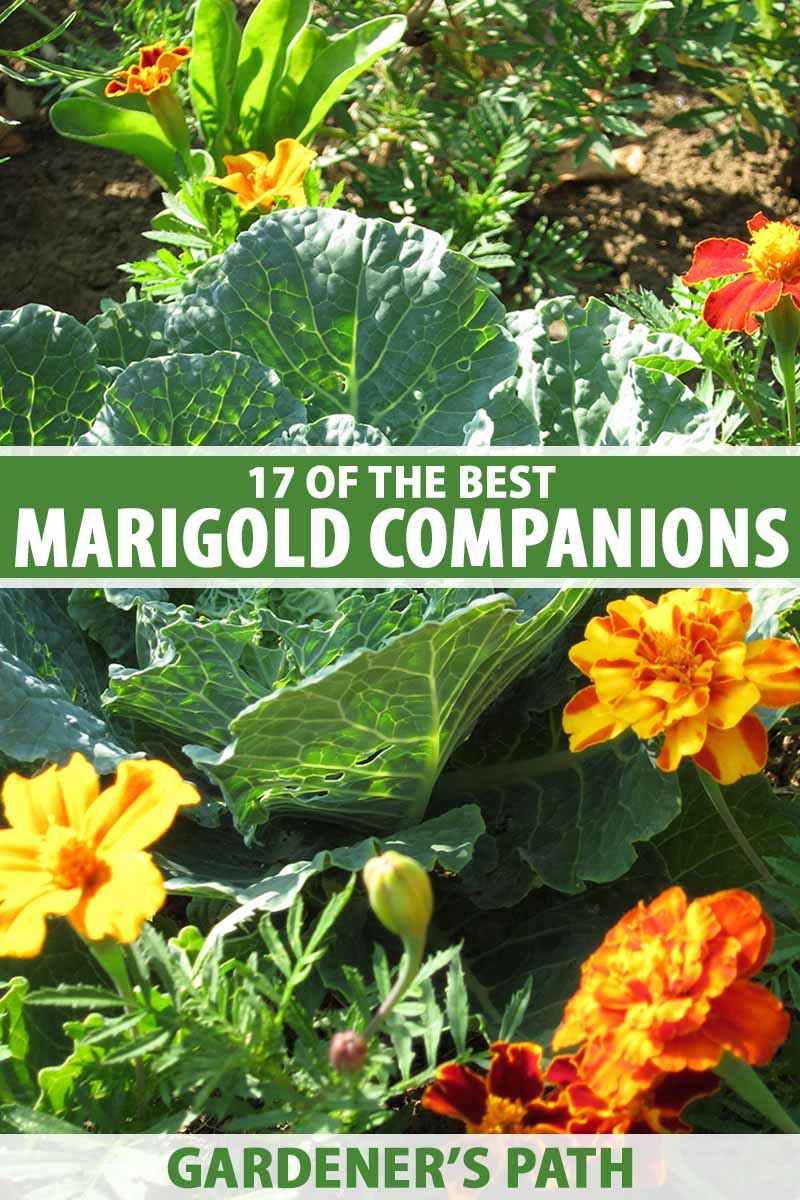
- Cilantro: Cilantro is a companion plant for carrots, as it helps to repel carrot fly. It also helps to improve the flavor of carrots.
- Lavender: Lavender is a companion plant for cabbage, broccoli, and cauliflower, as it helps to deter cabbage moths and other pests. It also helps to improve the flavor of these vegetables.

- Bee balm: Bee balm is a companion plant for beans, as it attracts bees, which help to pollinate the beans. It also helps to improve the nitrogen content of the soil around beans.

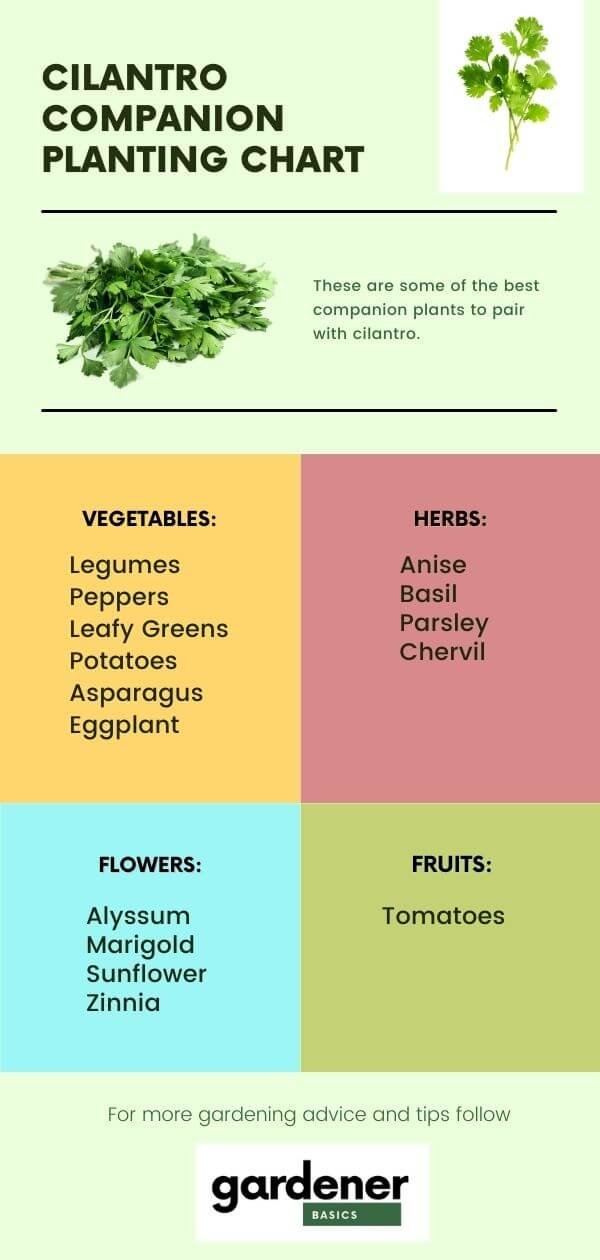
Post a Comment for " Companion Flowers That Will Boost Your Vegetable Garden"